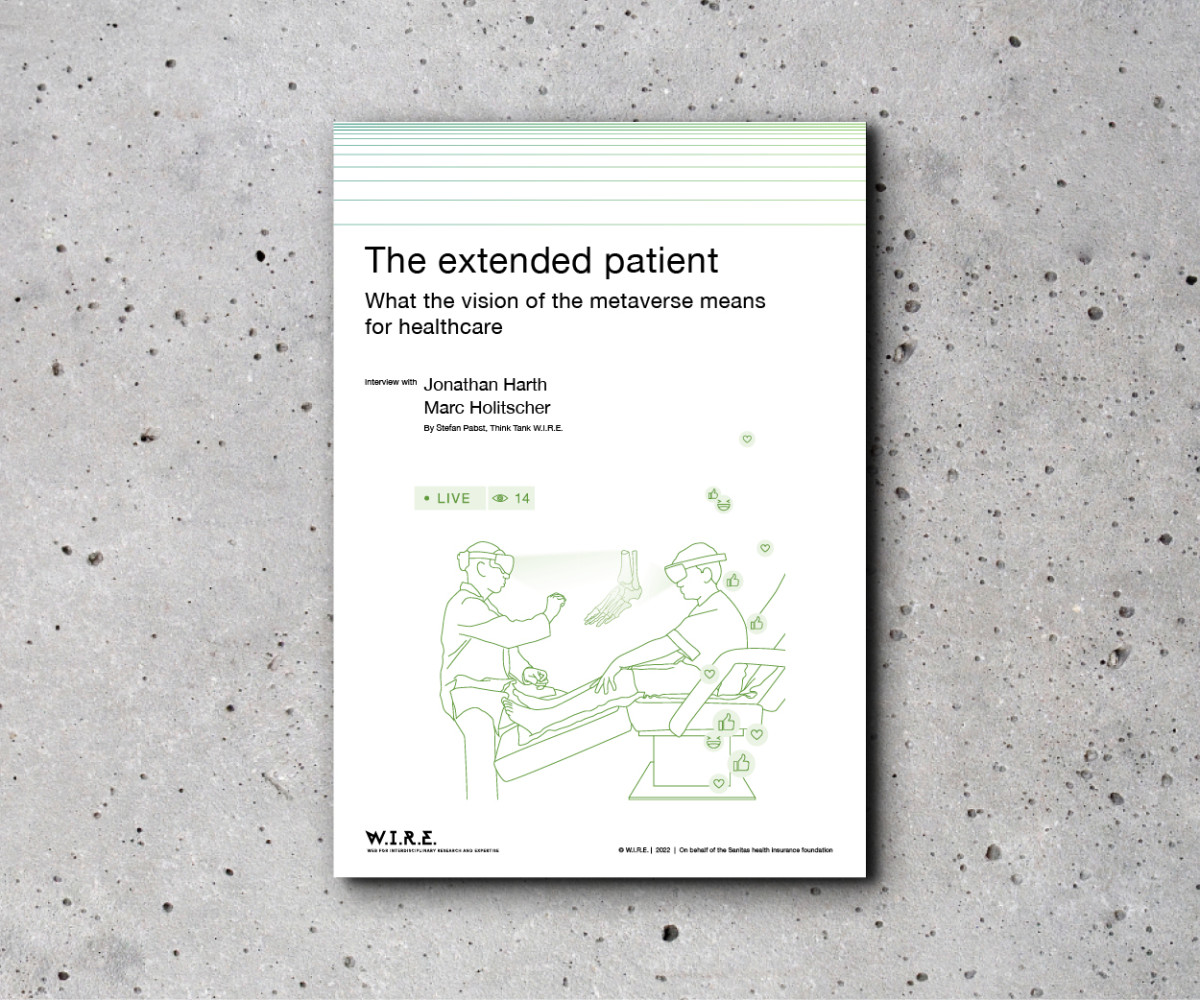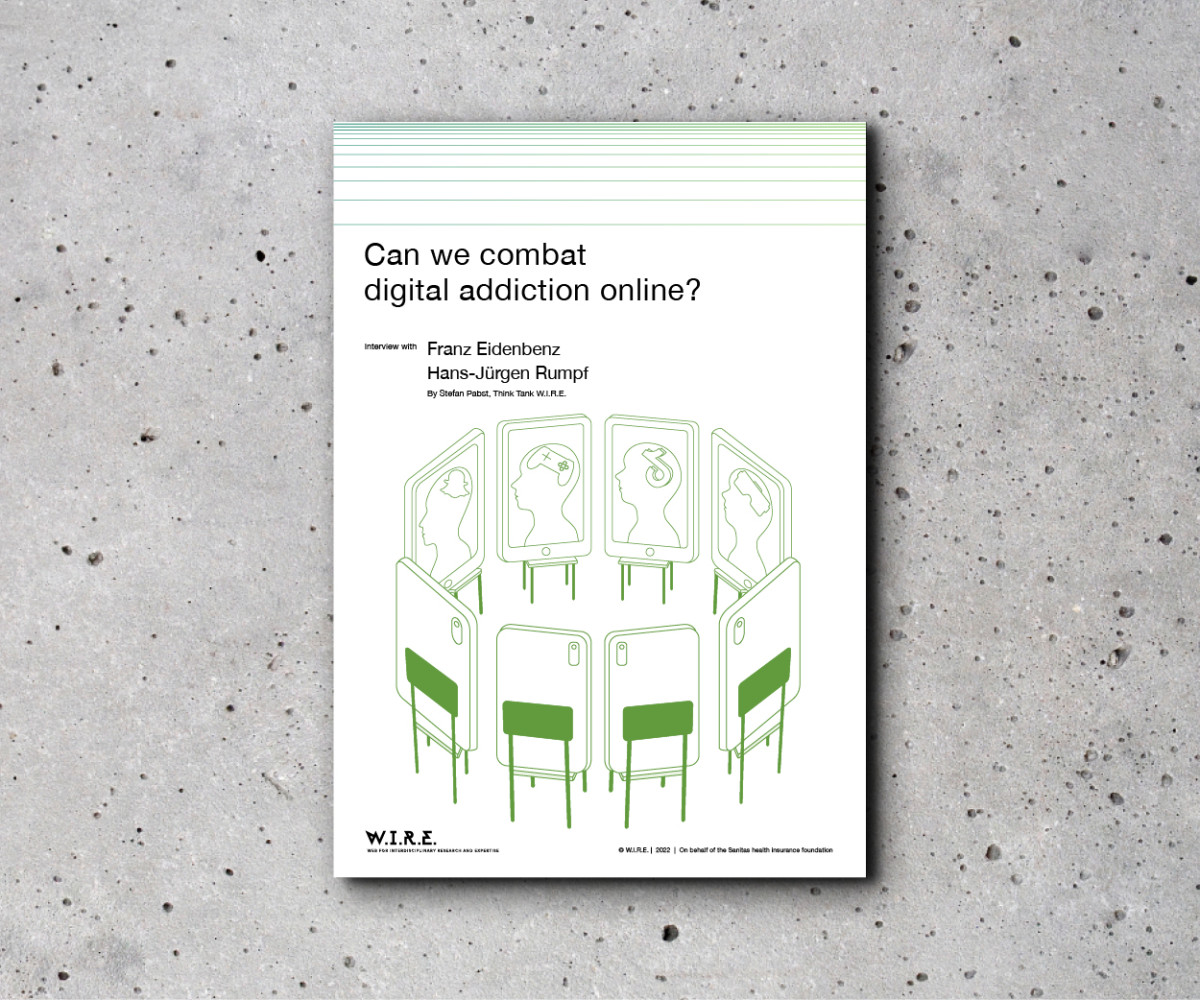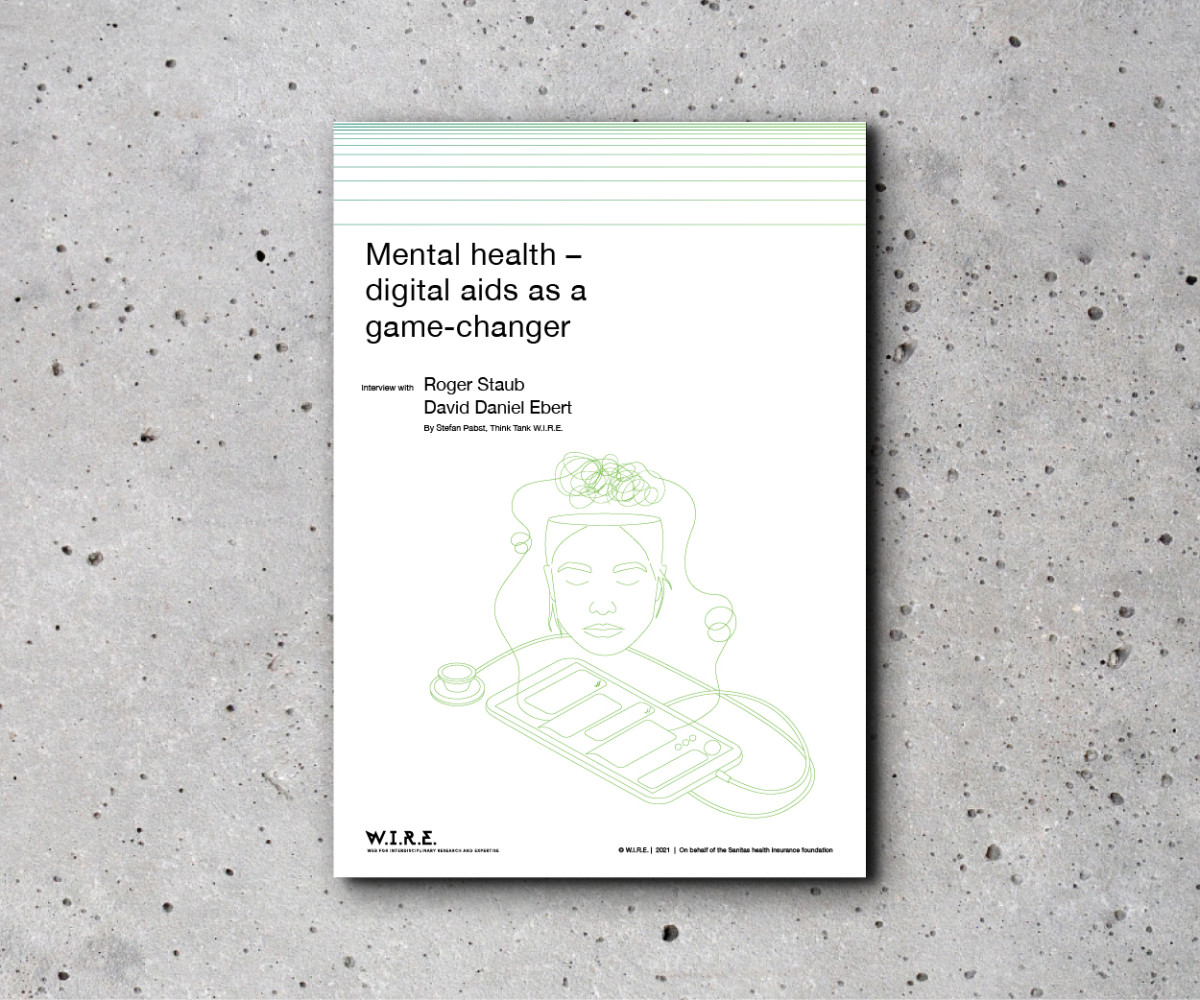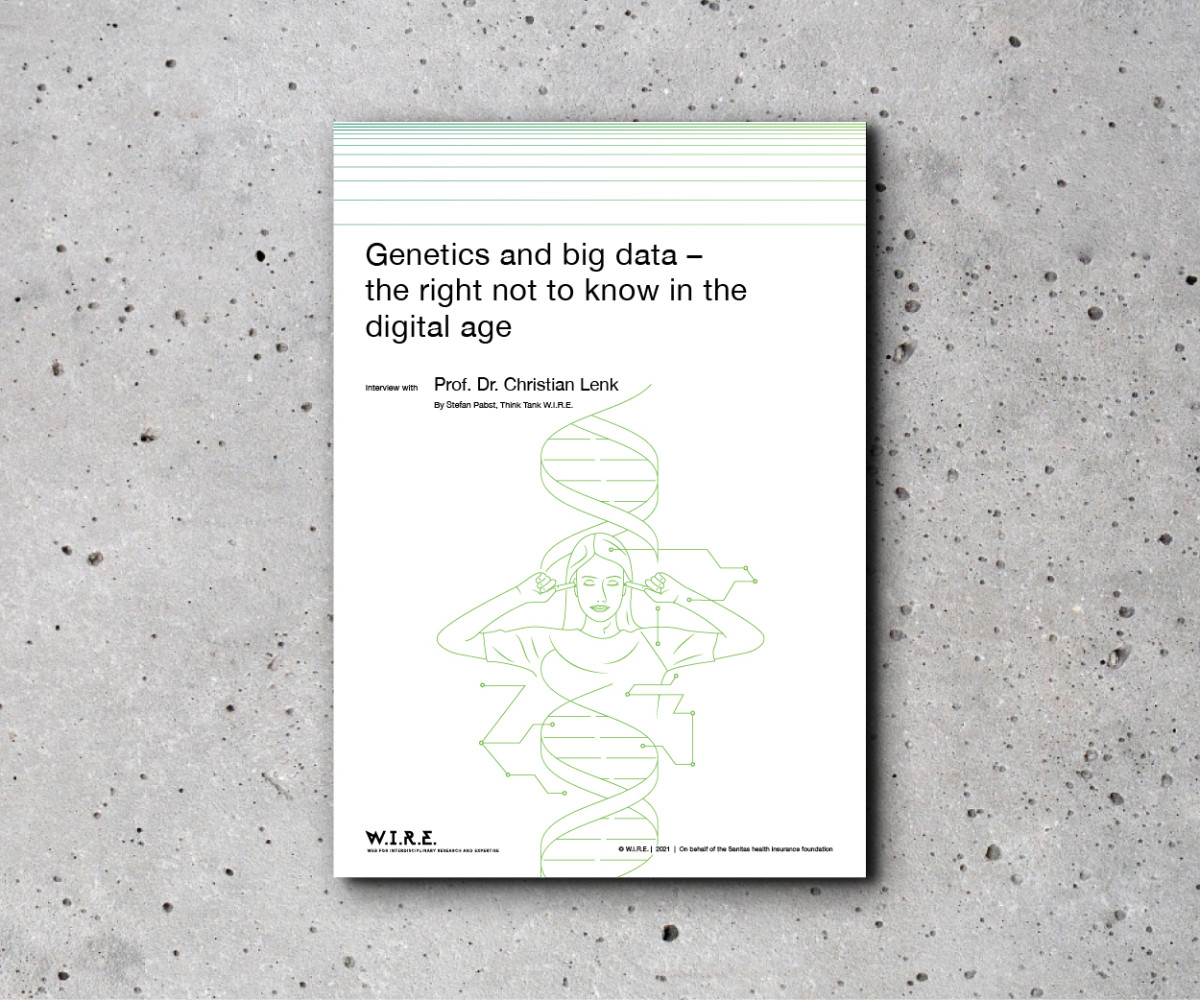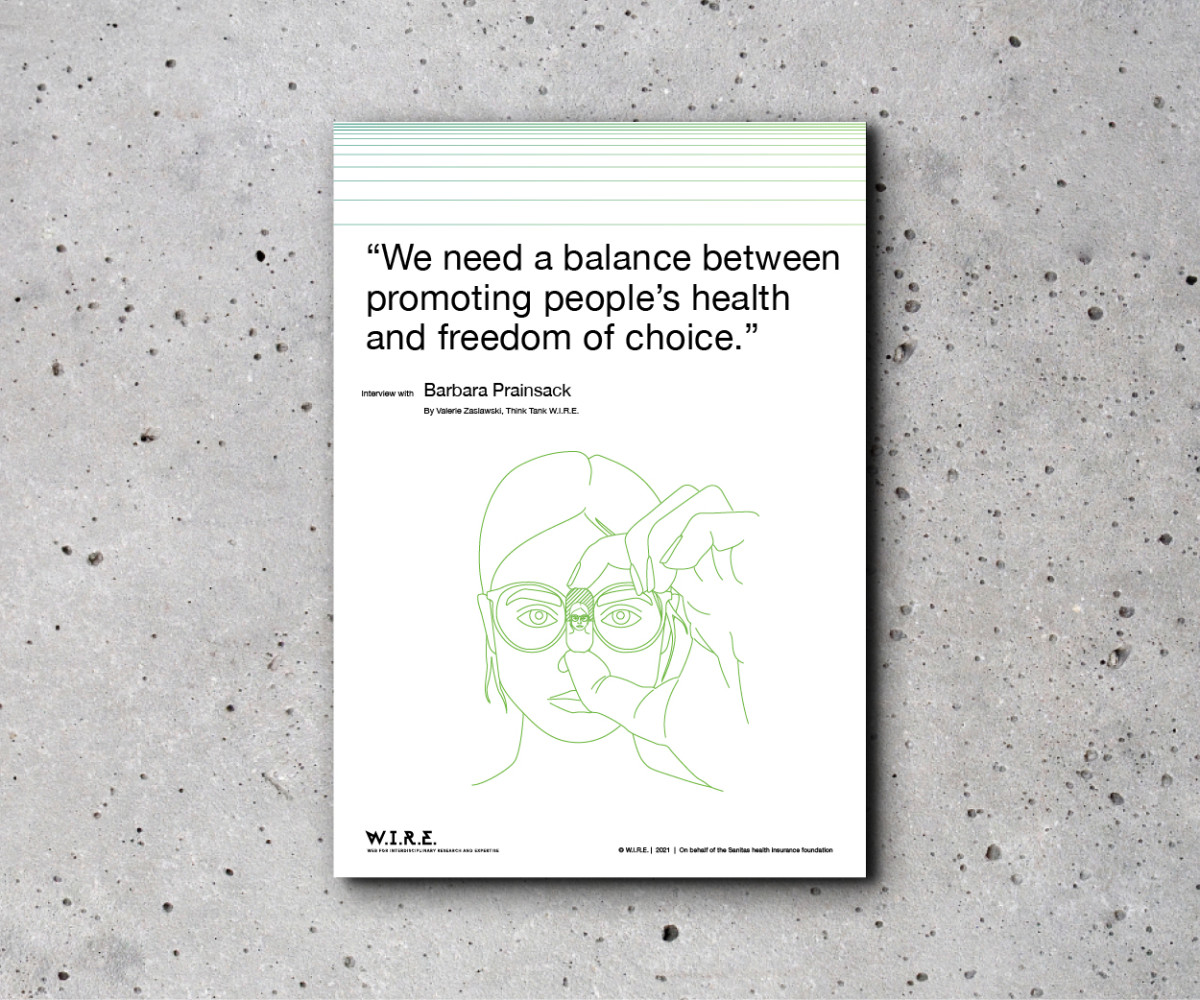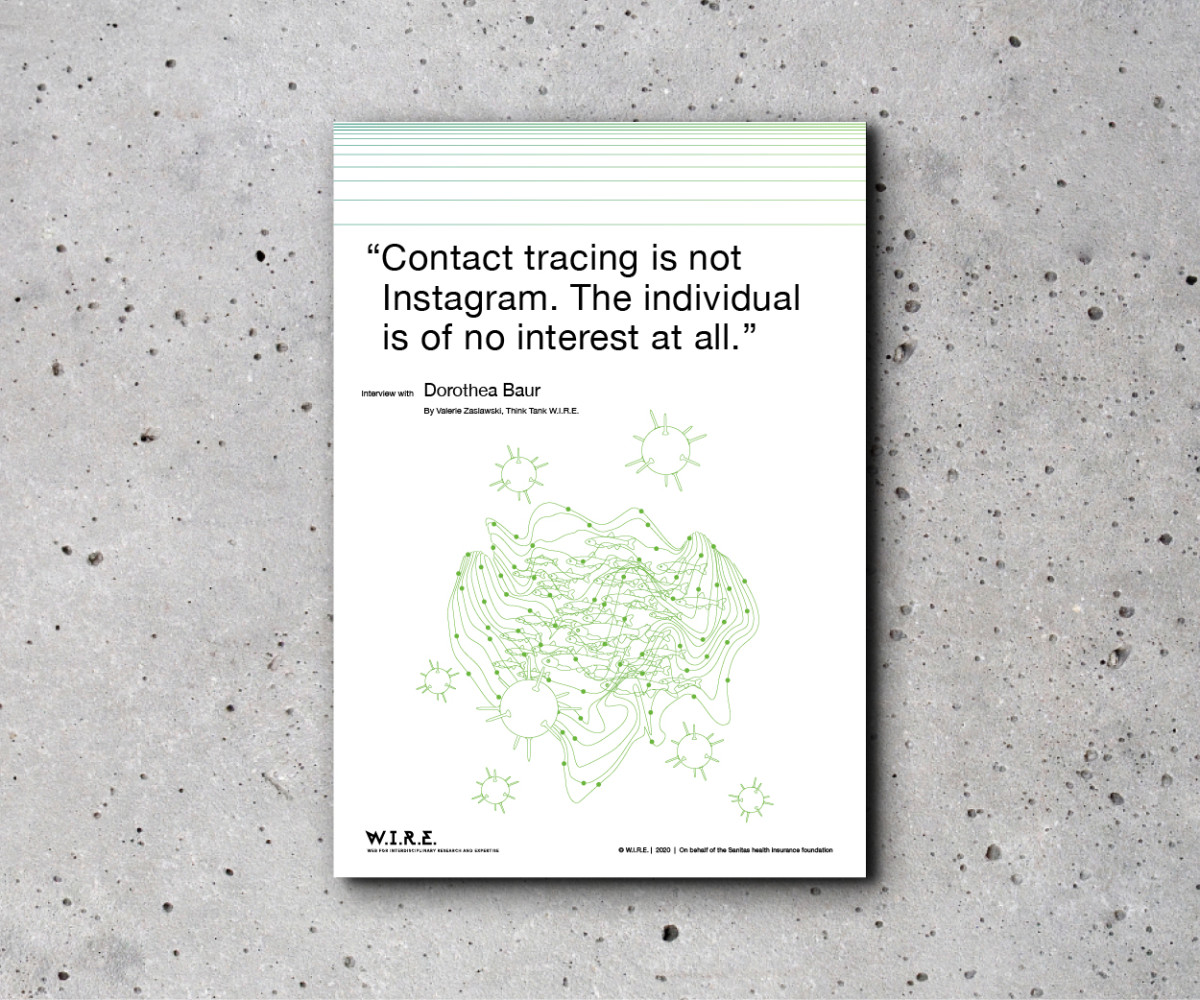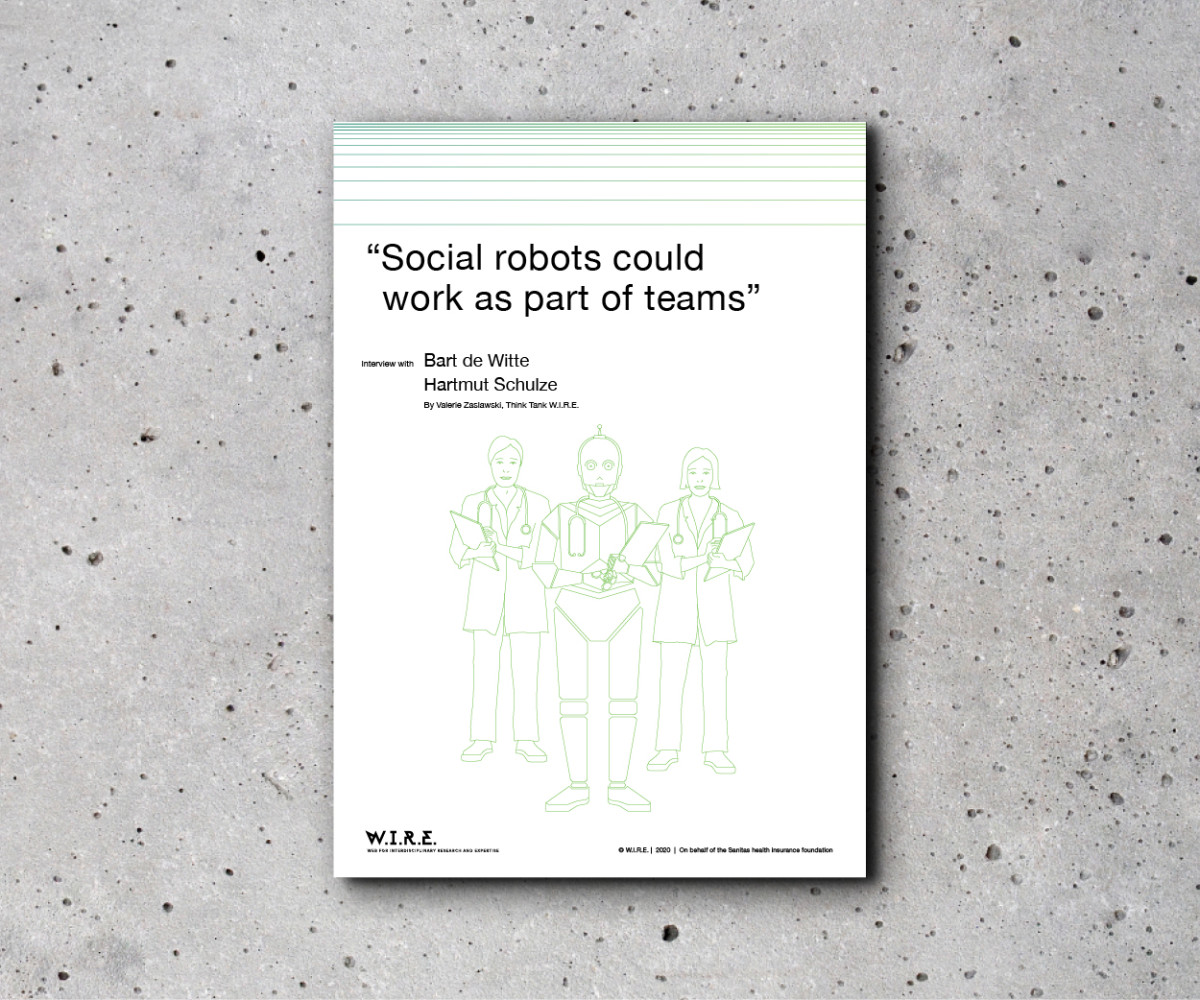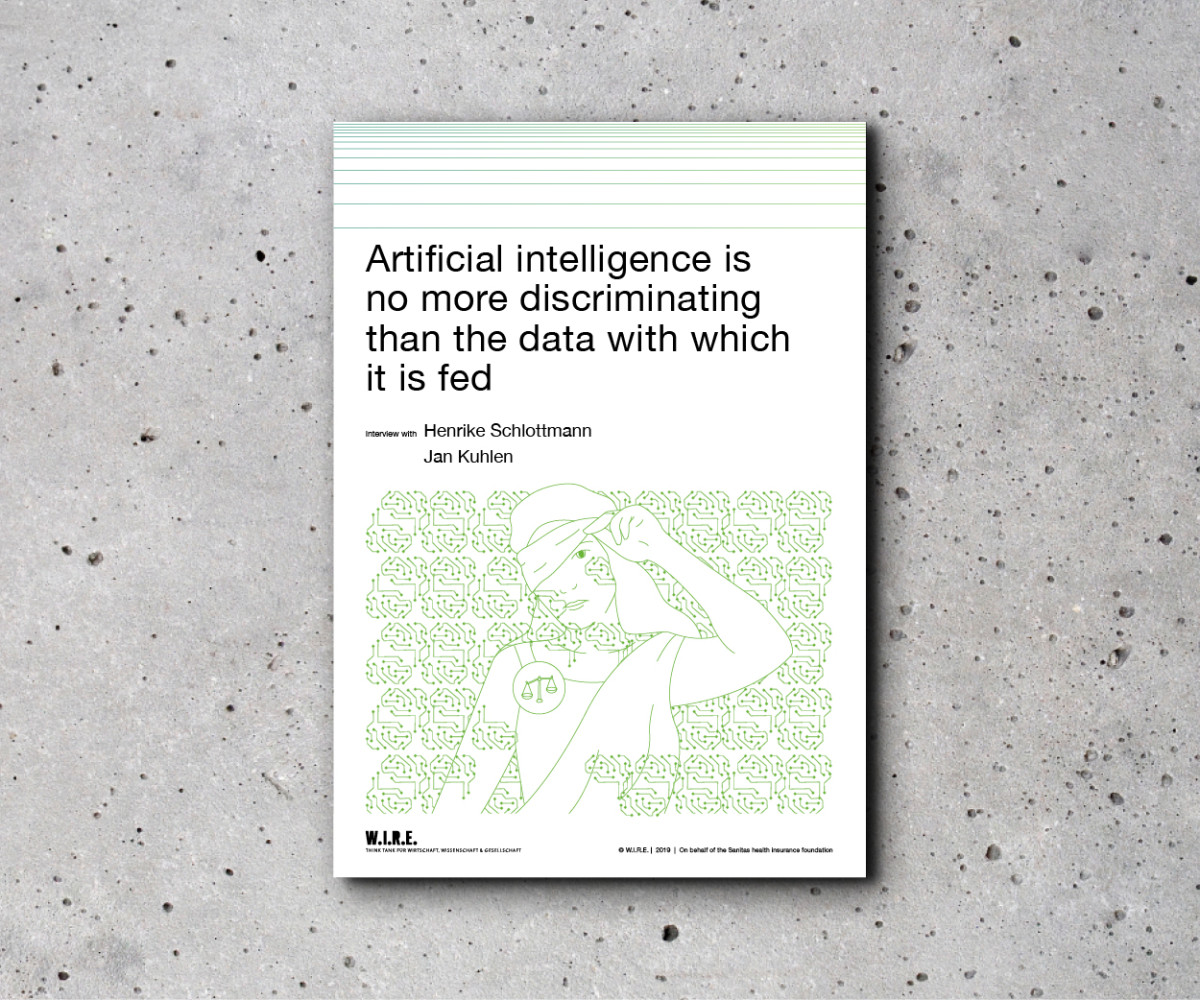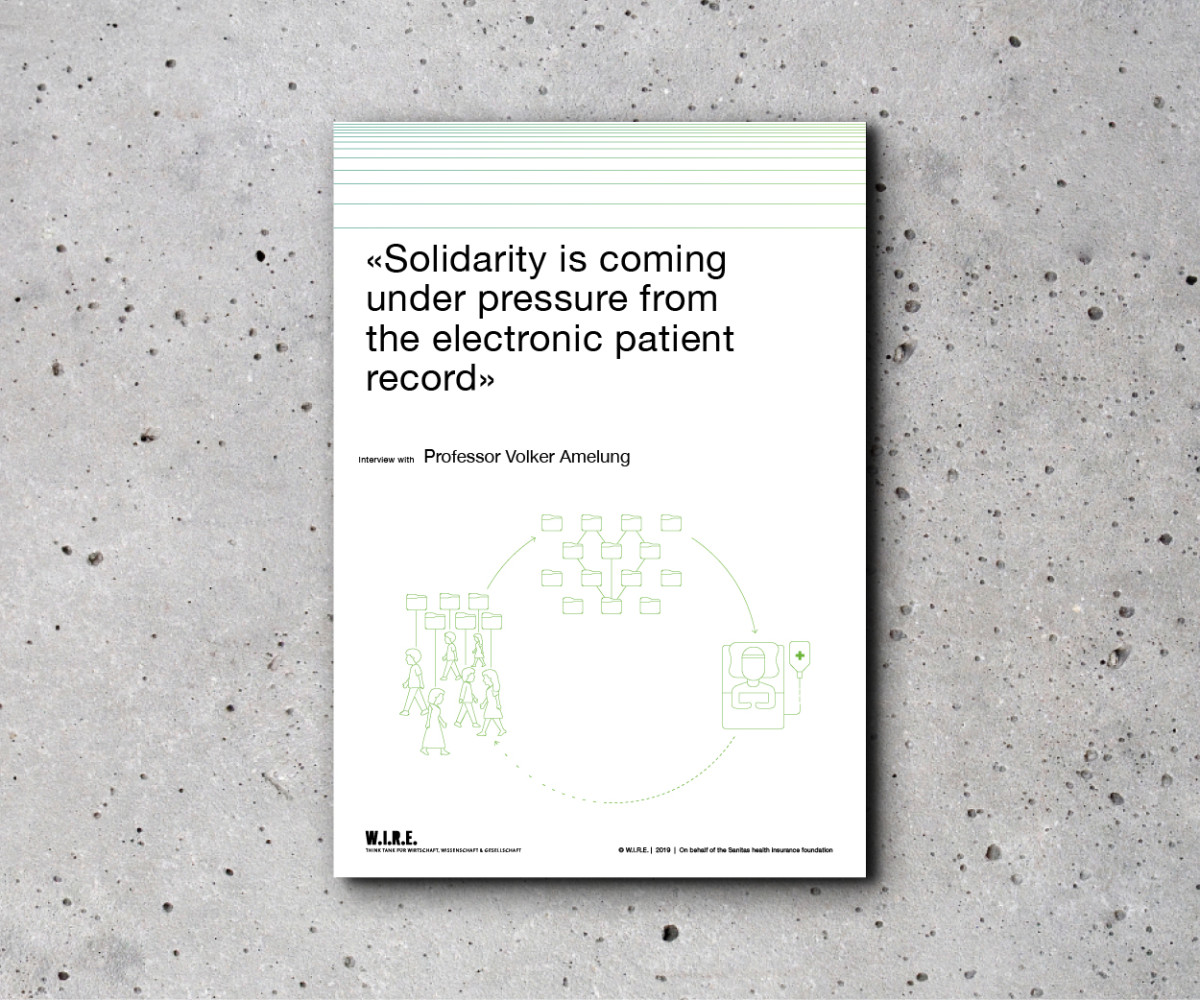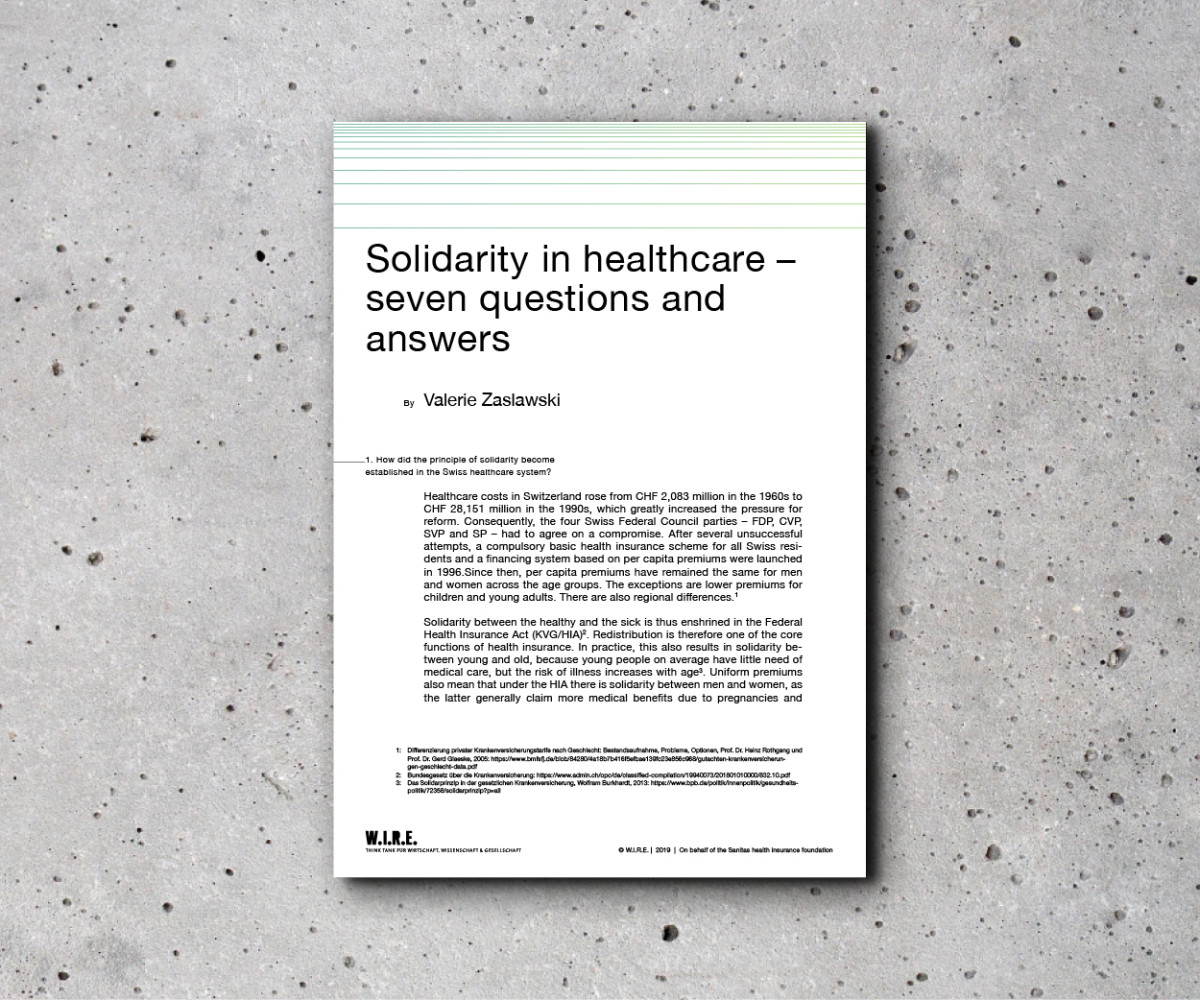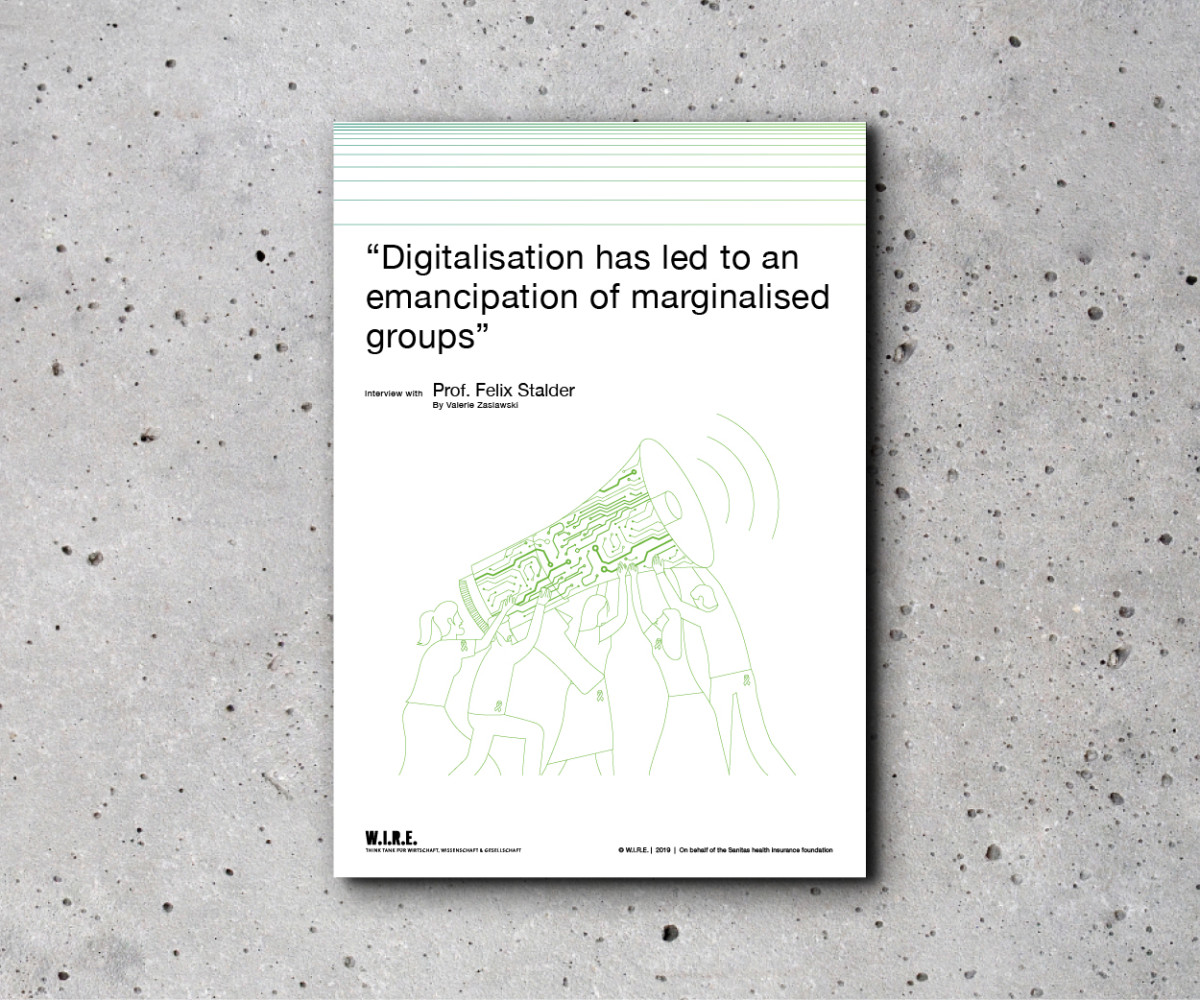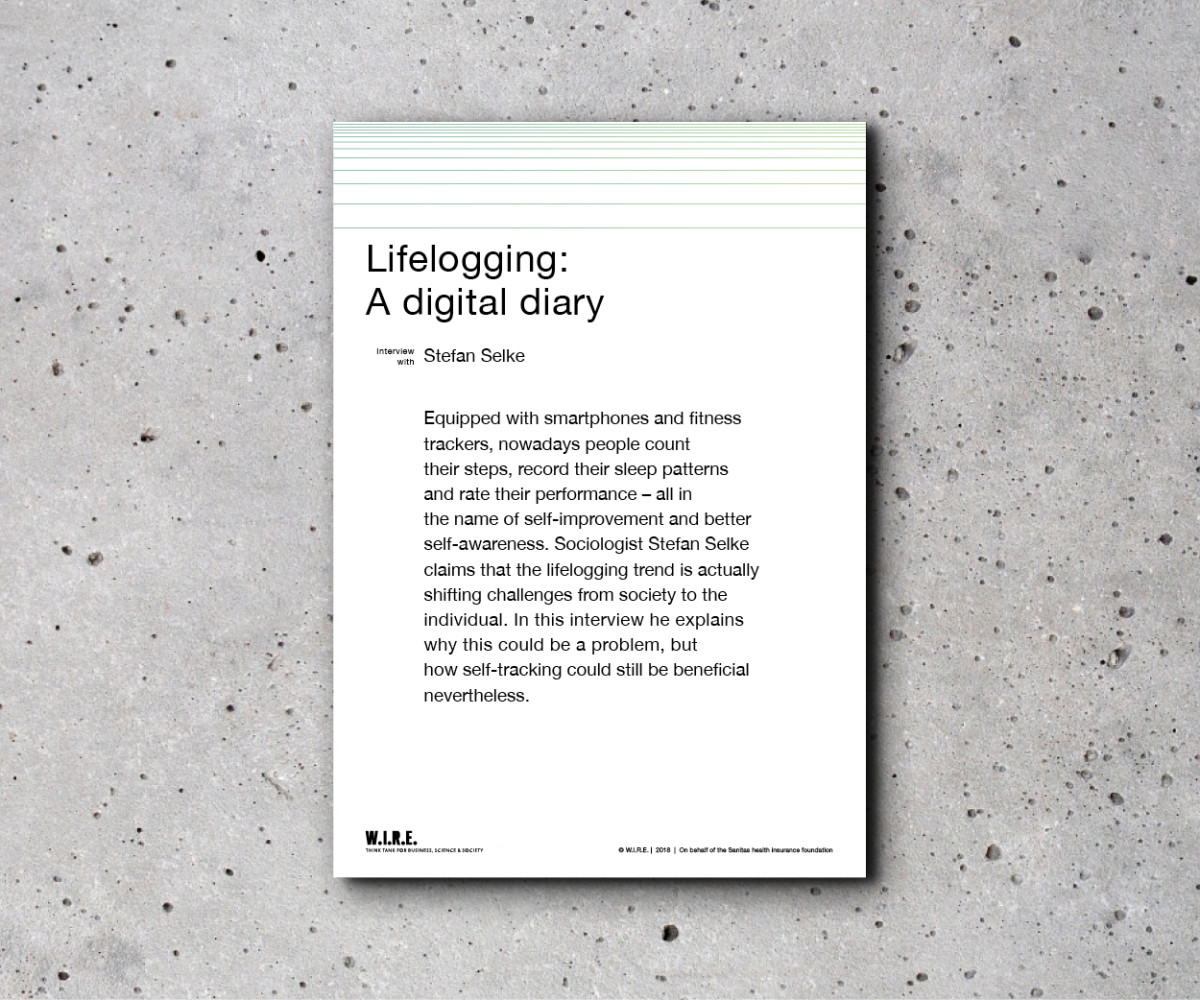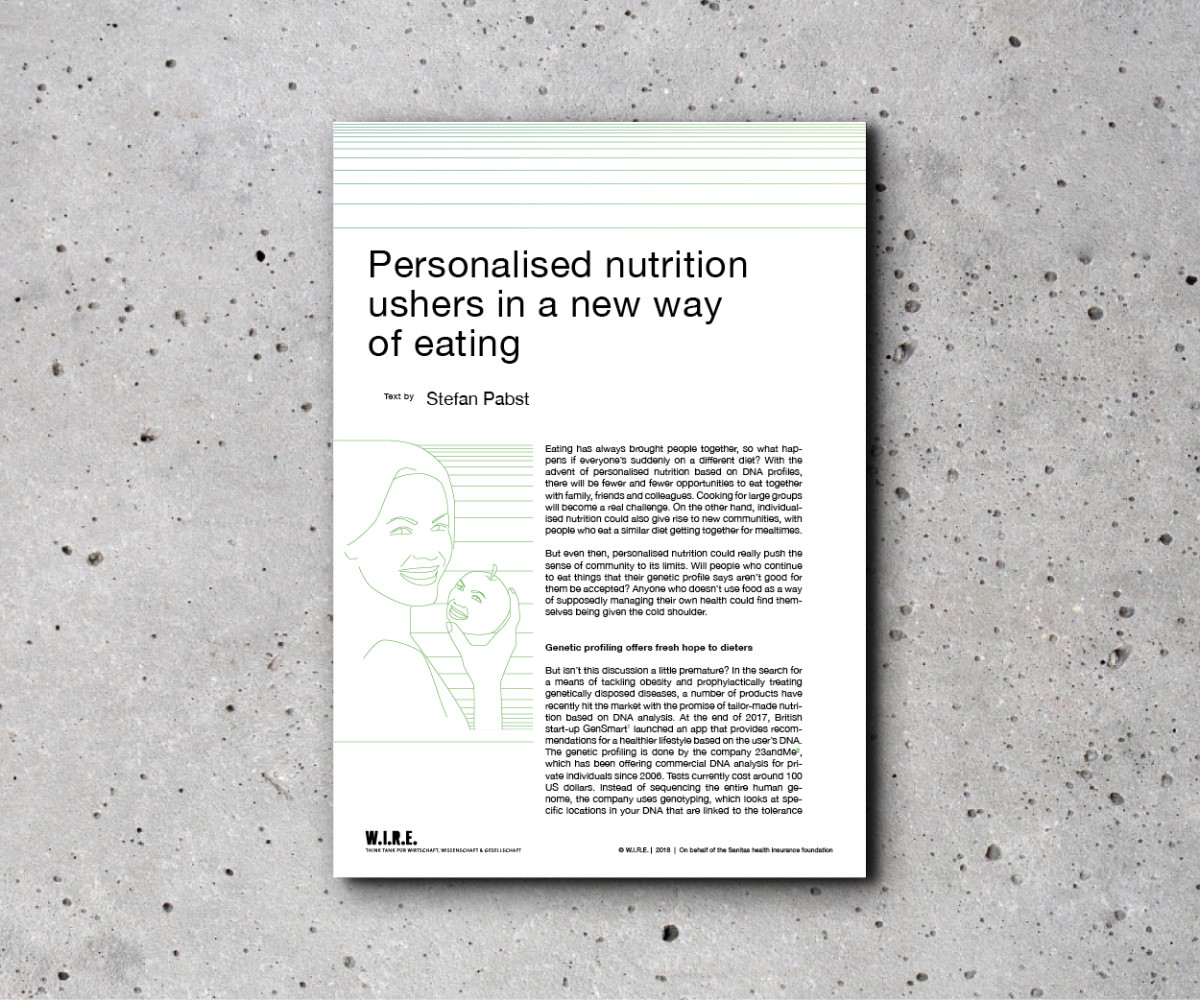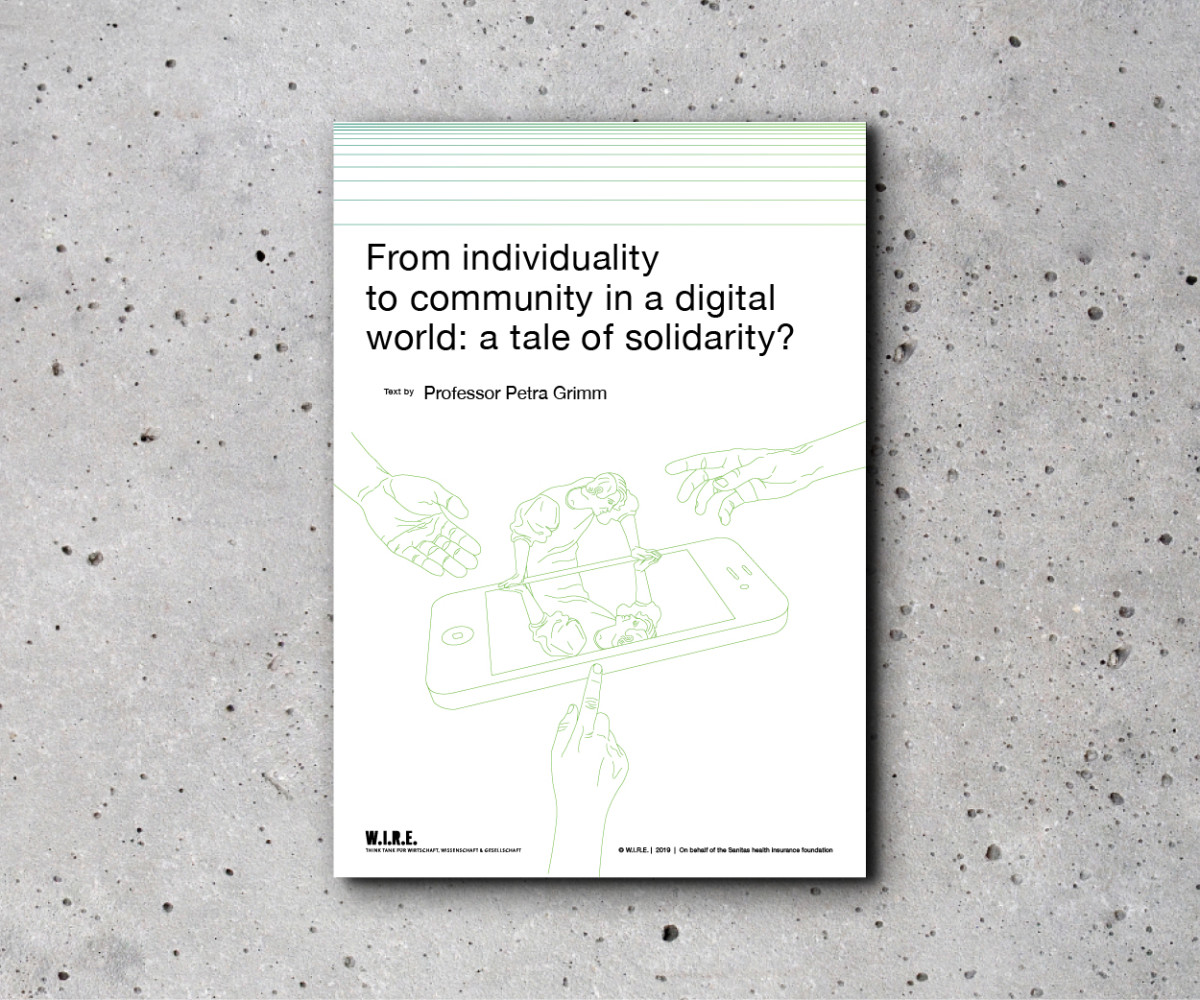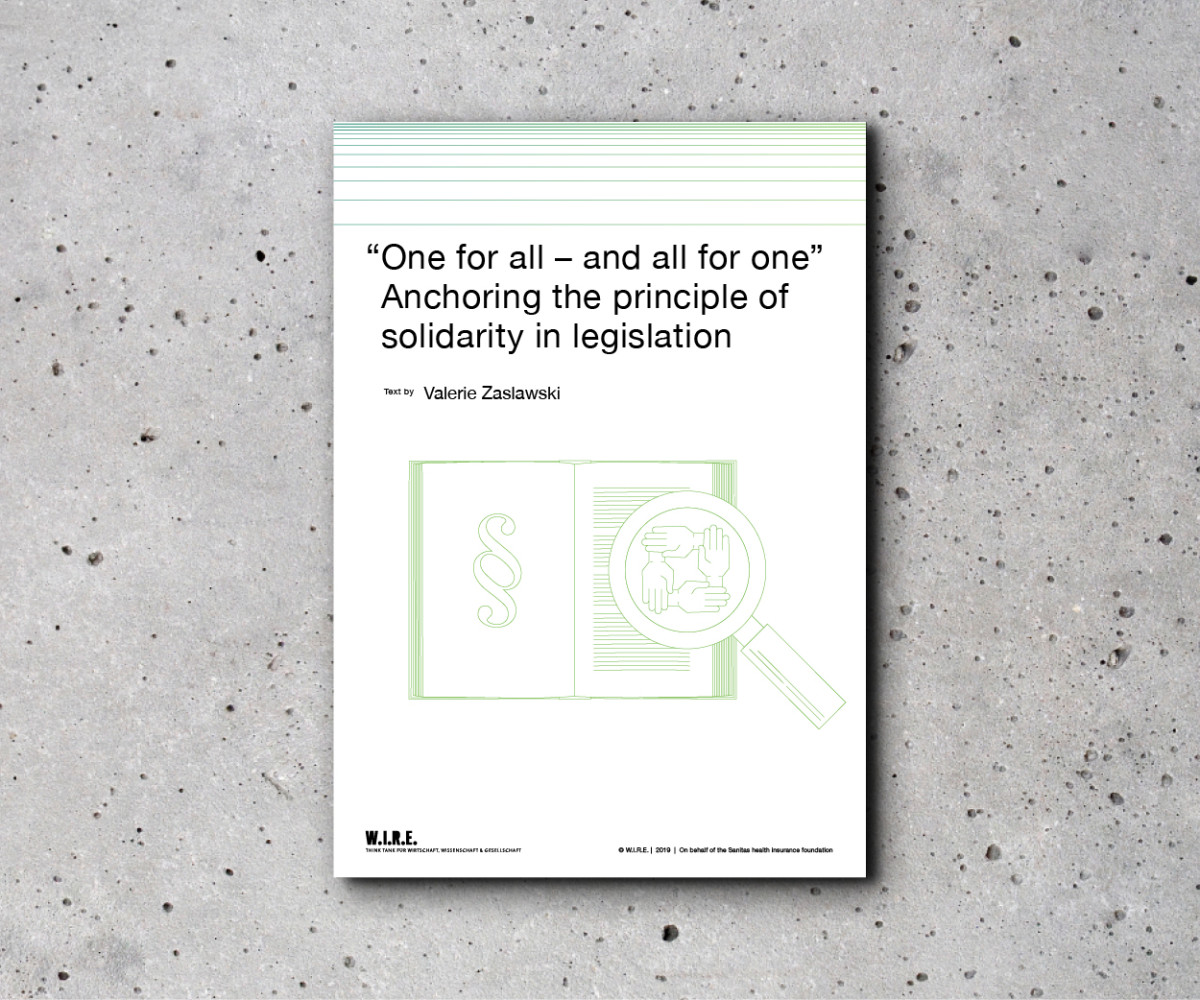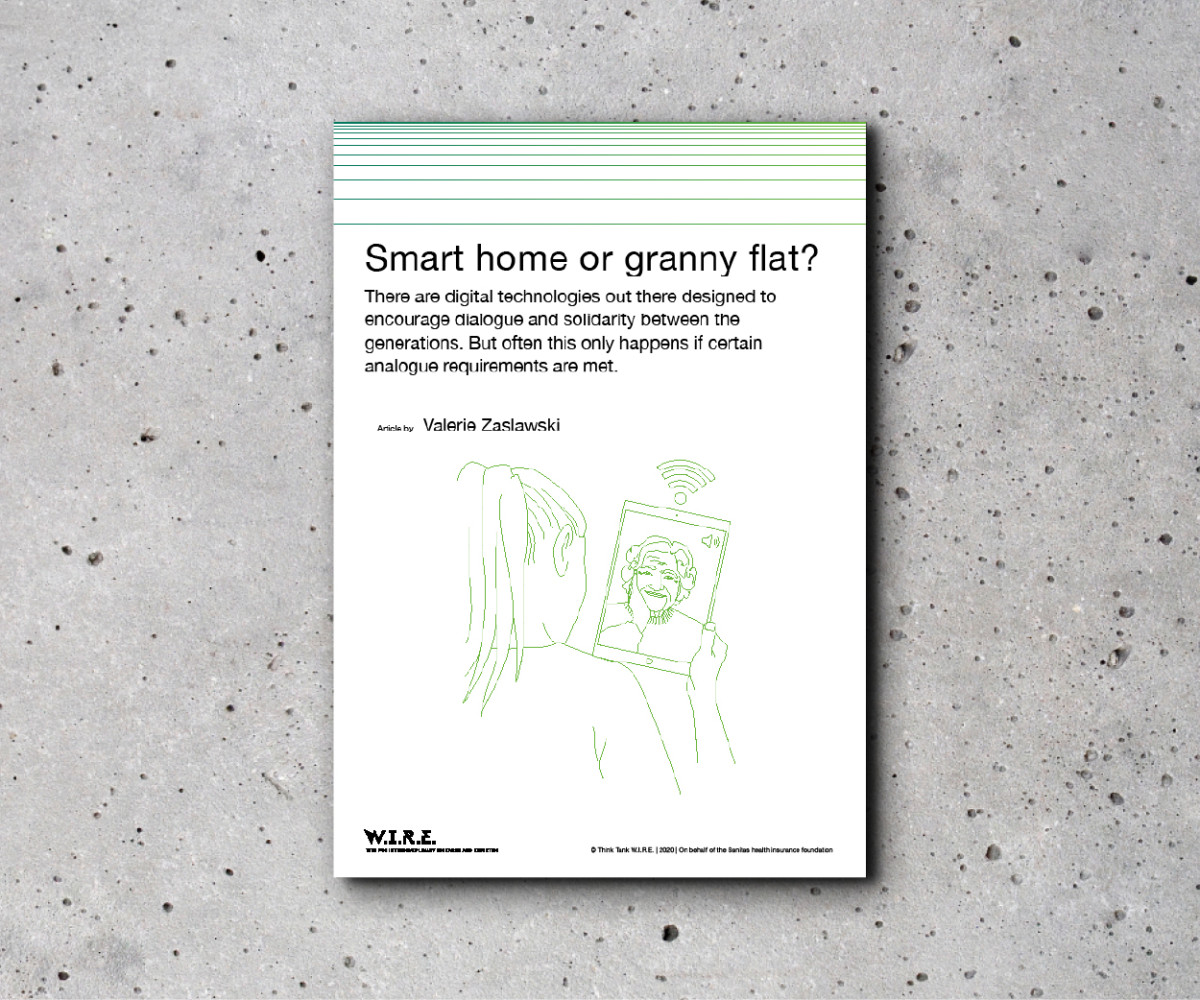THE EXTENDED PATIENT
The metaverse is intended to connect the digital platforms of the present day into a common space. This could benefit healthcare, taking in everything from consultations to complex surgeries. But there’s a long way to go until the technology, the political framework and society are ready and on the same page. Marc Holitscher, National Technology Officer (NTO) of Microsoft Switzerland, and sociologist Jonathan Harth discuss what it will take for the next internet generation to promote joint action and solidarity.
CAN WE COMBAT DIGITAL ADDICTION ONLINE?
Online addiction has been on the rise for years, and those affected are getting younger and younger. As the appeal of digital applications is set to rise, the risk of addiction will only increase. In this context, the options for digital therapy available today should make it easier to reach more people. Psychologists Franz Eidenbenz and Hans-Jürgen Rumpf see expert treatment that takes other mental health conditions into account as the key to successful therapy and advocate the widespread use of digital tools with clearly defined limits.
MENTAL HEALTH – DIGITAL AIDS AS A GAME-CHANGER
Mental illness is still a taboo subject in our society, and those affected often receive care too late. It is clear to both Roger Staub, managing director of the Pro Mente Sana foundation, and David Ebert, professor for psychology at the University of Munich and founder of the digital mental health provider HelloBetter, that society still has a long way to go in its approach to mental health. The problem can’t be solved easily with digital applications, but they are a game-changer in terms of switching the focus of mental health treatment from a provider to a patient-centred approach.
GENETICS AND BIG DATA – THE RIGHT NOT TO KNOW IN THE DIGITAL AGE
The right not to know is laid down by law to ensure that people can refuse information about their genome, for example if they do not want to find out if they have a predisposition to an incurable disease. Professor Christian Lenk from the University of Ulm explains how digitalisation – as driver of the knowledge society – affects the right not to know. In his view, patients will continue to have the right not to know when it comes to genetic testing. He also believes that it provides inspiration for fairer use of digital technologies.
PERSONALISED MEDICINE
The medicine of the future will focus on personalised health with the aim of catering to the predispositions and particularities of individual patients. This will be done on the basis of genetic research, but also the increasingly seamless analysis of digitally recorded daily data. In this interview, Barbara Prainsack, a political scientist specialising in medicine and ethics, explains why this personalisation doesn’t have to pose a risk for solidarity with regard to public health. What is uncertain according to Prainsack is whether all patients can really afford human support for this machine-based personalisation.
CONTACT-TRACING
Switzerland is just one of the countries using digital contact tracing in an effort to manage Covid-19. Ethicist Dorothea Baur explains why sharing individual data in the pandemic is a way for people to put solidarity into practice. She also describes how we’re getting more and more aware of the social, non-commercial value of data.
“SOCIAL ROBOTS COULD WORK AS PART OF TEAMS”
Social robots are gaining a foothold in medicine, care for the elderly and in people’s relationships. In this interview Bart de Witte, expert in digital transformation in healthcare, and Hartmut Schulze, occupational psychologist and head of the FHNW Robo Lab, explain how this technology will be increasingly used in nursing care and care for the elderly. While Mr. de Witte sees robots as a challenge to social solidarity, Mr. Schulze describes ways how the use of social robots could create stronger cohesion between people.
ARTIFICIAL INTELLIGENCE IS NO MORE DISCRIMINATING THAN THE DATA WITH WHICH IT IS FED
The use of artificial intelligence (AI) as the next step in algorithm-based decision-making is spreading across industries, and with it the risk of discrimination against individuals and groups. Henrike Schlottmann and Jan Kuhlen from the Zentrum für digitalen Fortschritt (centre for digital progress) explain in an interview what can be done to reduce unwanted unequal treatment. Their assessment focuses on the hypothesis that artificial intelligence simply reflects social bias and that discrimination can be easier to correct by systematising the errors – in both digital and analogue life.
"SOLIDARITY IS COMING UNDER PRESSURE FROM THE ELECTRONIC PATIENT RECORD"
In addition to enabling patients and health care professionals to store personal data centrally, the electronic patient record (EPR) also promises to improve efficiency. Professor Volker Amelung explains how this could affect solidarity. On behalf of the Stiftung Münch foundation in Germany, he investigated the differences why the introduction of the patient record is progressing differently throughout Europe. Switzerland is in line with the European average, while the Scandinavian countries are front runners and Slovenia and Ireland are bringing up the rear. Prof. Amelung, the study leader, believes that the difference in progress is due to the different governance structures. He maintains that successful implementation depends, above all, on inspiring leaders – and a little bit of pressure.
SOLIDARITY IN HEALTHCARE – SEVEN QUESTIONS AND ANSWERS
“DIGITALISATION HAS LED TO AN EMANCIPATION OF MARGINALISED GROUPS”
Cultural and media scientist Felix Stalder describes how a new infrastructure for social processes could be created through digitalisation, enabling the alternative lifestyles of marginalised groups to be more broadly integrated into society. Solidarity, however, is at risk of being eroded by digitalisation. This is also evident in the healthcare sector.
LIFELOGGING: A DIGITAL DIARY
Equipped with smartphones and fitness trackers, nowadays people count their steps, record their sleep patterns and rate their performance – all in the name of self-improvement and better self-awareness. Sociologist Stefan Selke claims that the lifelogging trend is actually shifting challenges from society to the individual. In this interview he explains why this could be a problem, but how self-tracking could still be beneficial nevertheless.
PERSONALISED NUTRITION USHERS IN A NEW WAY OF EATING
Eating has always brought people together, so what happens if everyone’s suddenly on a different diet? With the advent of personalised nutrition based on DNA profiles, there will be fewer and fewer opportunities to eat together with family, friends and colleagues. Cooking for large groups will become a real challenge. On the other hand, individualised nutrition could also give rise to new communities, with people who eat a similar diet getting together for mealtimes.
But even then, personalised nutrition could really push the sense of community to its limits. Will people who continue to eat things that their genetic profile says aren’t good for them be accepted? Anyone who doesn’t use food as a way of supposedly managing their own health could find themselves being given the cold shoulder.
FROM INDIVIDUALITY TO COMMUNITY IN A DIGITAL WORLD
“ONE FOR ALL – AND ALL FOR ONE” ANCHORING THE PRINCIPLE OF SOLIDARITY IN LEGISLATION
Solidarity as an implicit or explicit constitutional principle supports the cohesion of a society and is an integral part of policy both in Switzerland and in neighbouring European countries. The principle of solidarity plays a formative role in the historical development of modern welfare states, although the understanding varies greatly between liberal, conservative and social democratic models. Pressure on individual social welfare systems and the differing interpretations of solidarity are currently making it difficult to adopt a common position at European level.
SMART HOME OR GRANNY FLAT?
There are digital technologies out there designed to encourage dialogue and solidarity between the generations. But often this only happens if certain analogue requirements are met.



